A precarious return home
After enduring many hardships in life, the memories of her years living abroad have faded for Ms. Le Thi Thuy (58 years old, residing in residential area 4, Phu Vinh, Dong Son ward). Mr. Le Xuan Hoa, Ms. Thuy's brother, recounted: "In 2003, my sister and her nephew went missing, and it wasn't until 2022 that the family found them. We learned that the mother and son were tricked into going to China. Ms. Thuy was sold into marriage to a man two years younger than her, living in seclusion in a rural area of Guangdong province. For 19 years, she stayed at home cooking and doing housework until Chinese authorities checked her documents and found she didn't meet the residency requirements, forcing her to return to Vietnam. Upon her return, due to her advanced age, declining health, and emotional trauma, Ms. Thuy could only rely on the help of her relatives."
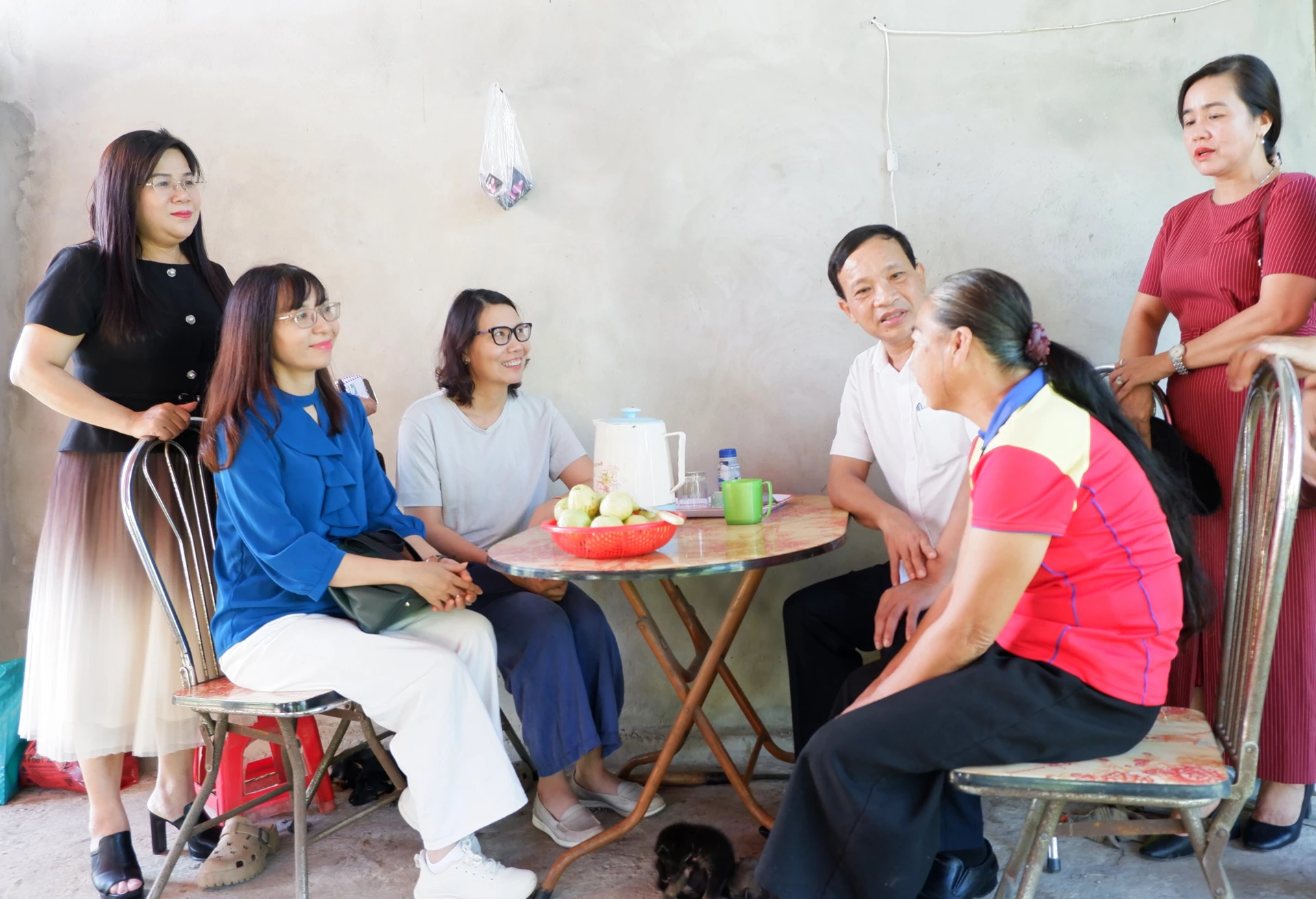 |
| Deputy Director of the Department of Health Ho Tan Canh visits the models supported by the project - Photo: HL |
Unlike Ms. Thuy, Mr. Pham Tien Thanh (42 years old), from Dong Duc village, Dong Trach commune, proactively went abroad to find work, hoping to accumulate capital to develop his family's economy . However, he was deceived and got stranded in a third country. Living illegally, finding work was difficult, and he had no income. After 10 months of wandering, in 2017, he decided to return home.
Ms. Nguyen Thi Thu Muoi (residential group 5, Dong Son ward) also spent 10 years working illegally in Russia and returned empty-handed after being deported. “I went illegally, without proper documents, so finding work was much more difficult. Whatever money I sent home each month was barely enough to support my children. When we returned home, my husband and I were already getting older, and without qualifications, it was very hard to find jobs. At that time, I felt very lost,” Ms. Muoi shared.
When belief is strengthened
To earn money to support her three children who were of school age, Ms. Mười worked odd jobs here and there. In 2024, when she learned about the program "Support for Reintegration Packages for Victims of Trafficking and Vulnerable Migrants," she applied, but secretly thought it would be difficult to get in, because many people in society were in the same situation as her. Ms. Mười recounted: "We were invited to training sessions and taken to visit various models. Afterwards, the project team asked us to develop a plan and model for family economic development. The plan had to clearly state our aspirations, development direction, implementation costs, and anticipate potential risks. Unexpectedly, the laundry model that my husband and I proposed was selected, and we received support in the form of two washing machines and one dryer, worth 85 million VND."
Over 1,000 blanket laundry orders in the first season, along with orders from tourists, boosted her confidence and motivation. Her Thien Thien laundry business has provided stable employment with an average income of 3-5 million VND per month. Importantly, since starting her new business and no longer having to work for others, Ms. Muoi has been able to care for her mother-in-law, who has been bedridden for 5-6 years due to a stroke.
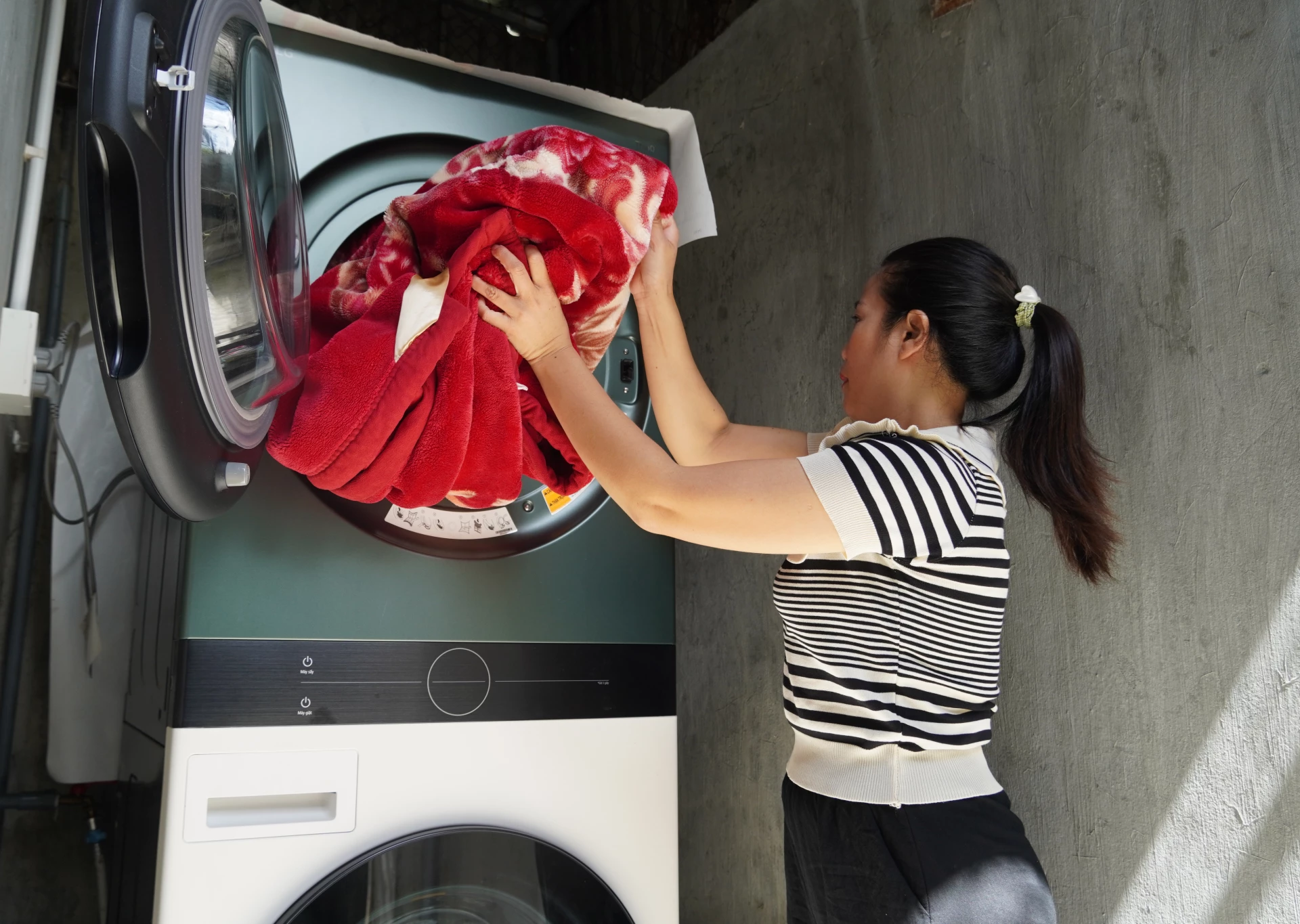 |
| The laundry business model has provided Ms. Nguyen Thi Thu Muoi with a stable job - Photo: HL |
As for Mr. Pham Tien Thanh, he and his wife decided to open a facility producing spring rolls, sausages, and snacks to serve the market in the former Bo Trach district. With the support of the project and additional investment in machinery and equipment, they expanded their production scale, generating a monthly profit of approximately 15-20 million VND. Mr. Thanh shared: “If I were younger, I would still go work abroad, but I would do so legally, with a better income for the future and greater security. But at my age now, establishing a business in my hometown is still the most suitable option.”
Mr. Le Xuan Hoa, the brother of Ms. Le Thi Thuy, a victim of human trafficking to China, emotionally shared: "Thank you to the project for providing a livelihood support package worth 50 million VND for my sister's farming and livestock model. Now Thuy has overcome the trauma, is happier, and has a job, able to support herself from her guava orchard and chicken farming."
Standing alongside vulnerable people
The component "Supporting Reintegration Packages for Traffickers and Vulnerable Migrants" under the project "Combating Trafficking and Modern Slavery Phase 3" in the former Quang Binh province has a budget of USD 122,307, equivalent to over VND 2.8 billion, funded by World Vision International (WVI).
In implementing its support activities, WVI, in coordination with the International Organization for Migration, has collaborated with other organizations such as Hagar International and the Center for Women and Development Support to jointly reach, screen, assess, refer, and support returning migrants.
“Provincial departments, agencies, and organizations, as well as the People's Committees of communes and wards with beneficiaries, need to continue maintaining, supporting, and creating conditions for the sustainable development of the 147 models. At the same time, they should closely monitor and supervise the models, connect resources from national target programs to create conditions for workers to expand production scale, and continue to build and replicate successful models… In addition, it is necessary to promote the role and responsibility of all levels, sectors, families, communities, and the entire society in communicating about preventing and combating human trafficking,” emphasized Ho Tan Canh, Deputy Director of the Department of Health and Head of the Project Management Board in Quang Tri province.
Ms. Duong Thi Thuong, Deputy Head of the Social Protection - Children and Social Evils Prevention Department under the Department of Health; Secretary and Coordinator of the provincial project, stated: During the 2023-2025 period, the project supported 147 workers in the area through training activities, providing livelihood support packages, and technical assistance in business development to help beneficiaries stabilize their lives and reintegrate into the community. Based on the needs and capabilities of the workers, in accordance with natural conditions and utilizing existing local resources, multi-sector economic models have emerged, such as: crop cultivation and livestock farming; mechanics; production facilities; food services, laundry, photocopying, etc. Encouragingly, 90% of the implemented models have proven effective.
With timely care and support from the project, vulnerable individuals have gradually stabilized, regained confidence and motivation. Their "road home" is therefore no longer so uncertain, but has opened up hope for a new, more stable life in their own homeland.
Huong Le
Source: https://baoquangtri.vn/xa-hoi/202509/duong-ve-khong-con-chong-chenh-a9b549f/



![[Photo] Prime Minister Pham Minh Chinh holds a phone call with the CEO of Russia's Rosatom Corporation.](/_next/image?url=https%3A%2F%2Fvphoto.vietnam.vn%2Fthumb%2F1200x675%2Fvietnam%2Fresource%2FIMAGE%2F2025%2F12%2F11%2F1765464552365_dsc-5295-jpg.webp&w=3840&q=75)


![[Photo] Closing Ceremony of the 10th Session of the 15th National Assembly](/_next/image?url=https%3A%2F%2Fvphoto.vietnam.vn%2Fthumb%2F1200x675%2Fvietnam%2Fresource%2FIMAGE%2F2025%2F12%2F11%2F1765448959967_image-1437-jpg.webp&w=3840&q=75)



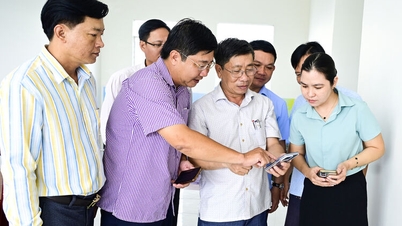











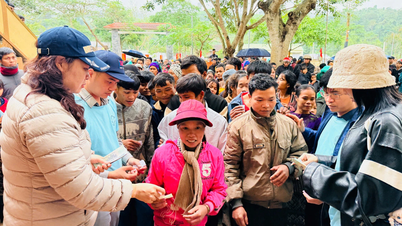

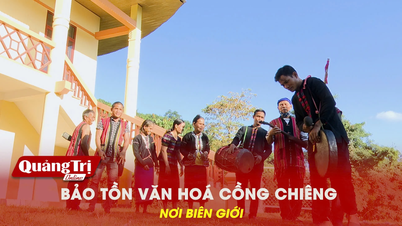
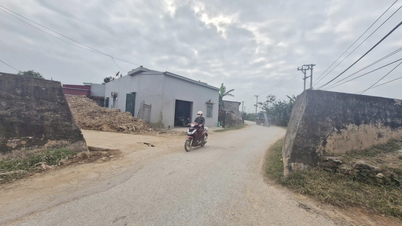
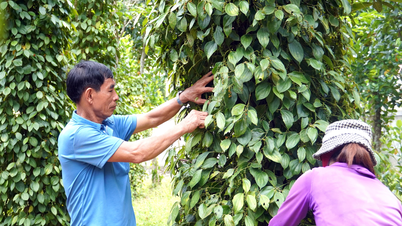






















![[OFFICIAL] MISA GROUP ANNOUNCES ITS PIONEERING BRAND POSITIONING IN BUILDING AGENTIC AI FOR BUSINESSES, HOUSEHOLDS, AND THE GOVERNMENT](https://vphoto.vietnam.vn/thumb/402x226/vietnam/resource/IMAGE/2025/12/11/1765444754256_agentic-ai_postfb-scaled.png)

















































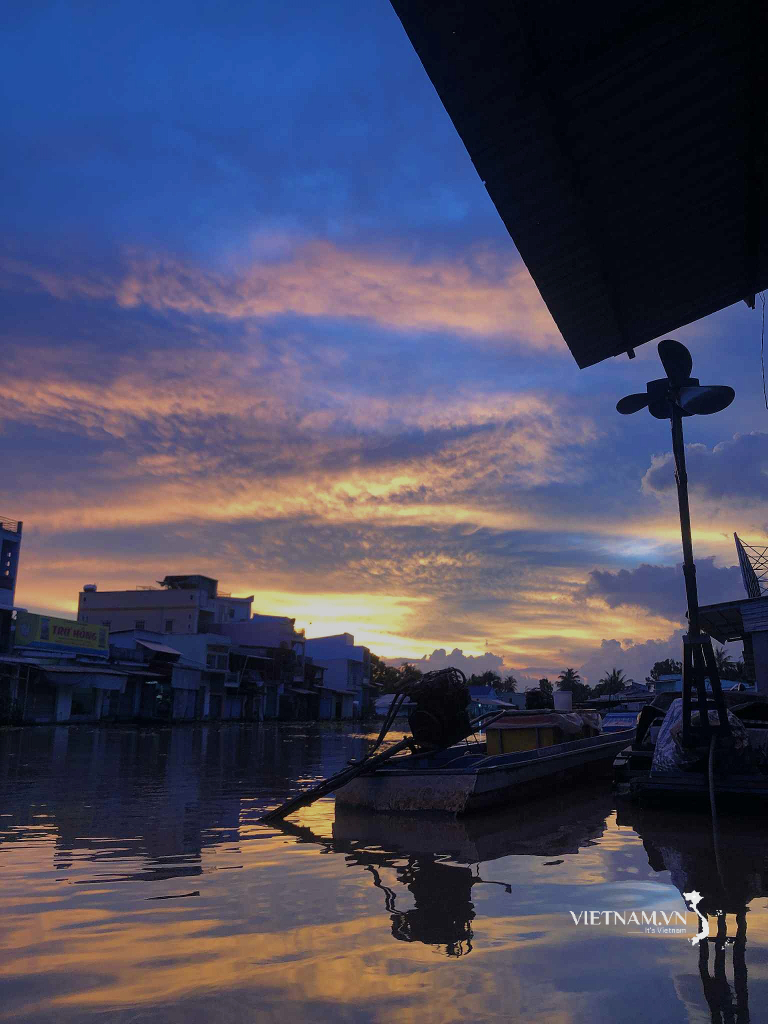

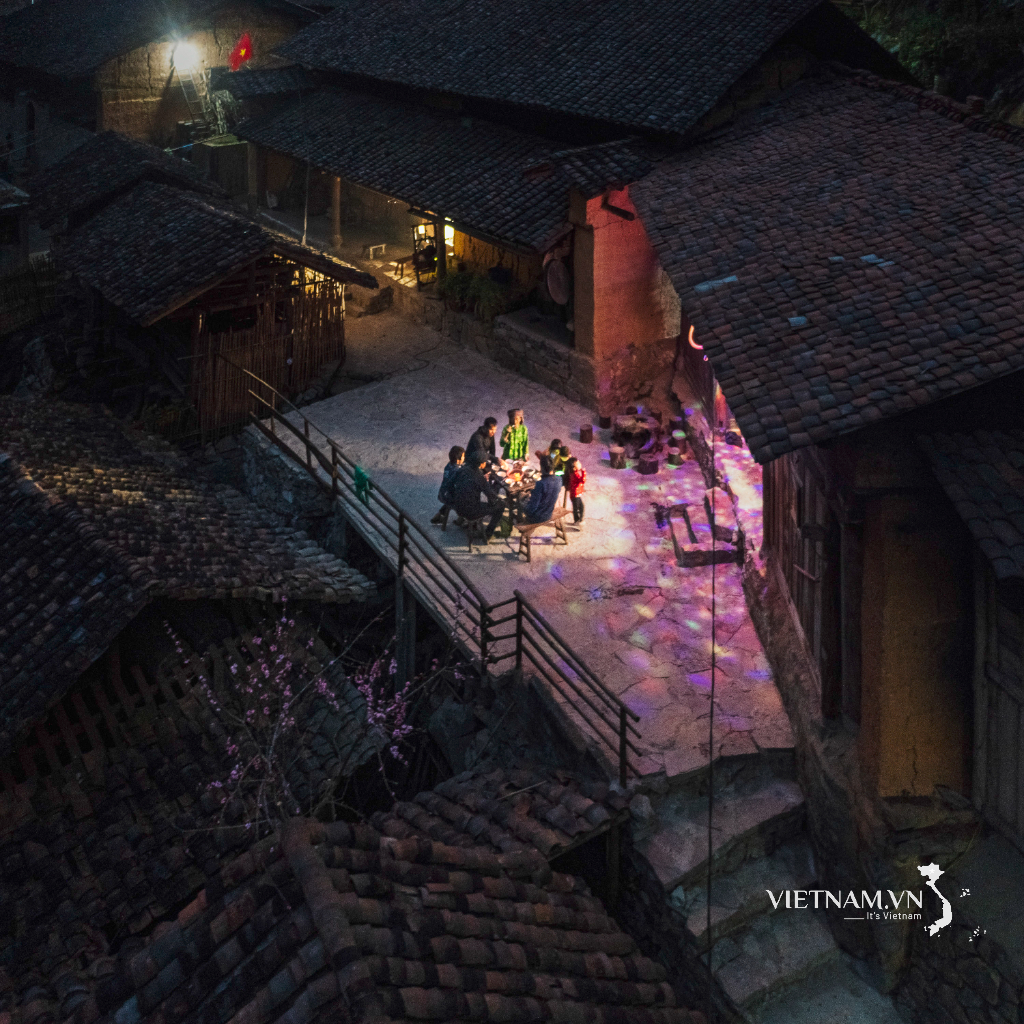
Comment (0)